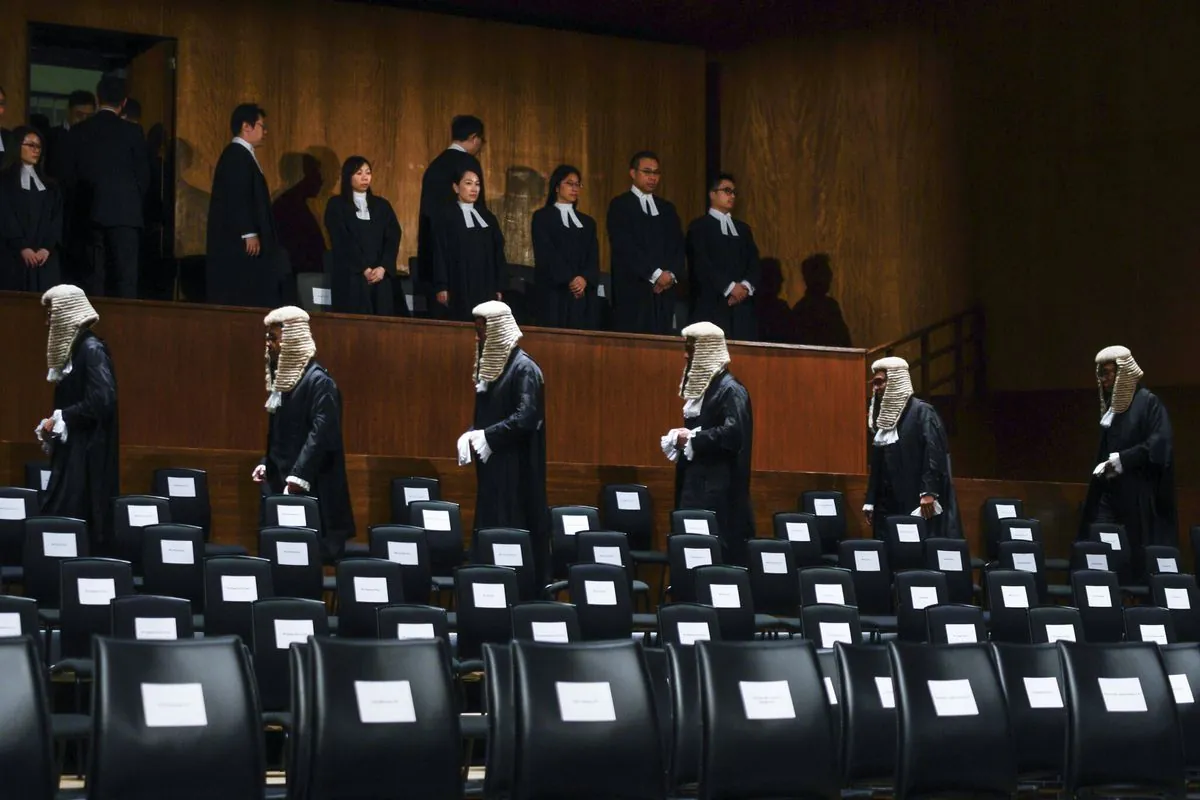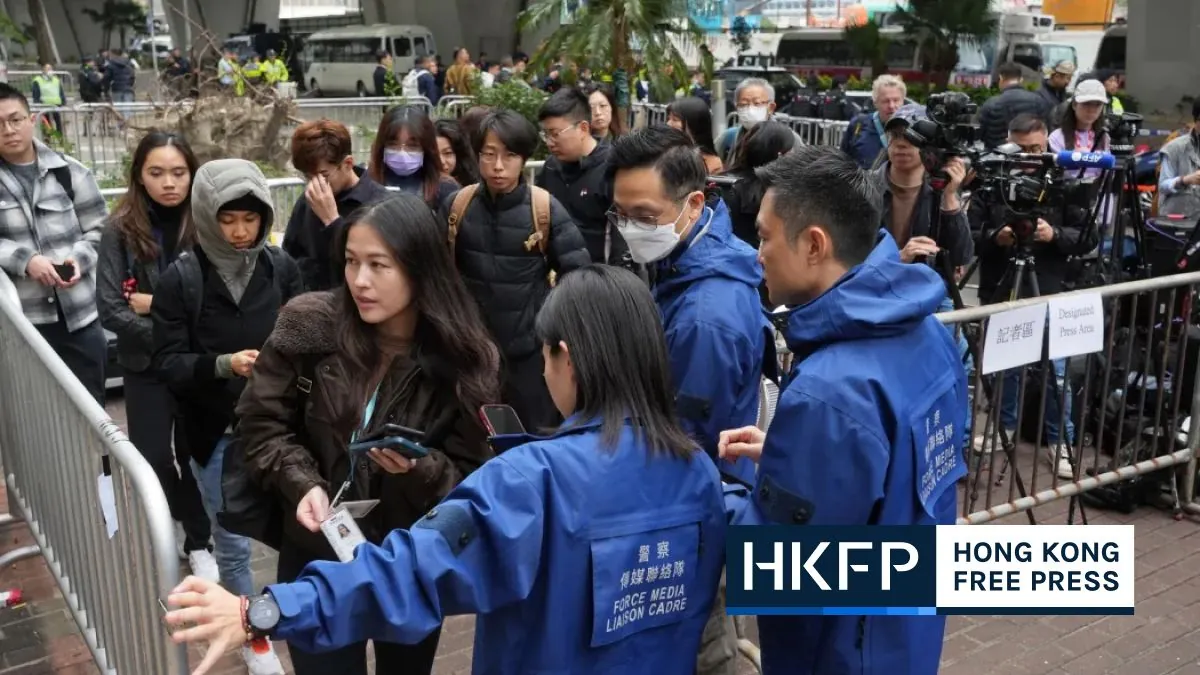Hong Kong Editors Sentenced in Landmark Press Freedom Case
Two former Stand News editors in Hong Kong face sedition charges, with one receiving a 21-month sentence. The case highlights growing concerns over press freedom and free expression in the city.

In a significant blow to press freedom in Hong Kong, two former editors of the online news outlet Stand News have been sentenced for publishing "seditious" articles. This unprecedented ruling marks a turning point in the city's once-vibrant media landscape.
Chung Pui-kuen, 54, the former editor-in-chief of Stand News, received a sentence of one year and nine months. His colleague, Patrick Lam, 36, was granted immediate release due to health concerns. The verdict comes nearly three years after the closure of Stand News following a police raid in December 2021.
The case against Chung and Lam stems from articles published between 2020 and 2021, which the court deemed could incite "hatred" towards the Hong Kong government. This ruling has sent shockwaves through the journalism community, as it marks the first time reporters have been convicted under the colonial-era sedition law.

Hong Kong, a former British colony returned to Chinese rule in 1997, operates under the "one country, two systems" principle. This arrangement, enshrined in the Basic Law - Hong Kong's mini-constitution - was designed to preserve the city's freedoms and autonomy. However, recent years have seen a significant erosion of these liberties.
The implementation of the Beijing-imposed National Security Law in June 2020, followed by additional security legislation in early 2024, has dramatically altered the landscape for free expression in Hong Kong. These laws have been used to target journalists, activists, and academics, creating an atmosphere of fear and self-censorship.
"The only way for journalists to defend the freedom of the press is to report, just like everyone who is still holding fast to their posts today."
The impact of these legal changes extends beyond journalism. Human Rights Watch reports that Hong Kong's eight public universities are experiencing increased repression in humanities departments, with students and academics facing potential harassment or prosecution for their work.
Hong Kong's media environment, once considered one of the freest in Asia, has undergone a dramatic transformation. The city's press freedom ranking has plummeted since 2002, reflecting the growing challenges faced by journalists. The closure of pro-democracy newspaper Apple Daily in 2021 was another significant blow to press freedom in the region.
The Hong Kong government maintains that the courts have clarified the distinction between lawful criticism and unlawful speech. However, journalists in the city report struggling with vague red lines, leading to self-censorship and avoidance of potentially sensitive topics.
As Hong Kong approaches its 27th year under Chinese rule, the city's unique status as a global financial hub with its own currency and separate membership in various international organizations is increasingly at odds with the tightening control over free expression. The sentencing of Chung and Lam serves as a stark reminder of the changing realities in a city once known for its vibrant press and academic freedom.


































